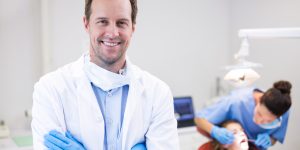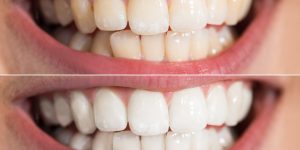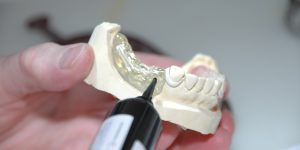Laser dentistry
Why laser dentistry?
Laser dentistry, cutting-edge technology driven dentistry branch that benefits its patients with faster treatments and less overall discomfort. Dental professionals who use lasers can perform a significantly higher number of procedures, in less time, with results outperforming those achieved by traditional methods.
Few of the many benefits including:
Clinician Benefit:
• Incremental revenue through additional procedures
• Increased patient acceptance • Generate patient referrals
Production Efficiency:
• Improved access and field-of-vision
• Decreased treatment time in many cases
• Reduced impression retakes
Patient Comfort:
• A healthier approach to tissue management as compared to a scalpel or electrosurgery
• Minimal need for anesthesia
• Reduction in post-op discomfort
General Dentistry
Compared to traditional methods and surgical devices such as electrocautery, a laser is gentler, more predictable, and often times will not require a local anesthetic. Diode lasers cut with a very small zone of necrosis, allowing you to perform a wide array of soft tissue procedures with little to no discomfort, no fear of gingival recession, and rapid healing. Immediate hemostasis in most cases is another added benefit.
Frenectomy
Bloodless and suture-free release of the maxillary or mandibular frenums can be performed with a diode laser. A frenectomy prevents the need for future grafting by stopping the migration of gingival tissue, improving access for oral hygiene, as well as correcting speech impediments.
Periodontal/Hygiene Applications
Dental hygienists can incorporate soft-tissue diode laser therapy in combination with scaling and root planing in periodontal pockets. A diode laser is absorbed well by melanin, hemoglobin, and other chromophores present in periodontal disease. This allows for a non-surgical approach to gain easier access to deeper calculus deposits after the ablation of diseased epithelium and hemorrhage control. Laser-assisted periodontal therapy (LAPT) can be used as an adjunct to traditional scaling and root planing. Laser energy selectively targets only darker, necrotic tissue and leaves healthy tissue alone, allowing for better healing and results. Dental hygienists can also perform other various procedures depending on state law with a non-initiated tip such as biostimulation to aid in the healing of things like aphthous ulcers.
Specialty/Surgical Applications
Specialists and surgeons have unique patient needs. Some examples include short crowns that do not allow for proper bracket placement, delays in the eruption of teeth, and uneven gingival margins. Unlike an Electrosurge, diode lasers are safe to use around metal brackets and implants. These techniques provide a bloodless, dry field with little to no need for local anesthesia and minimal patient discomfort.












